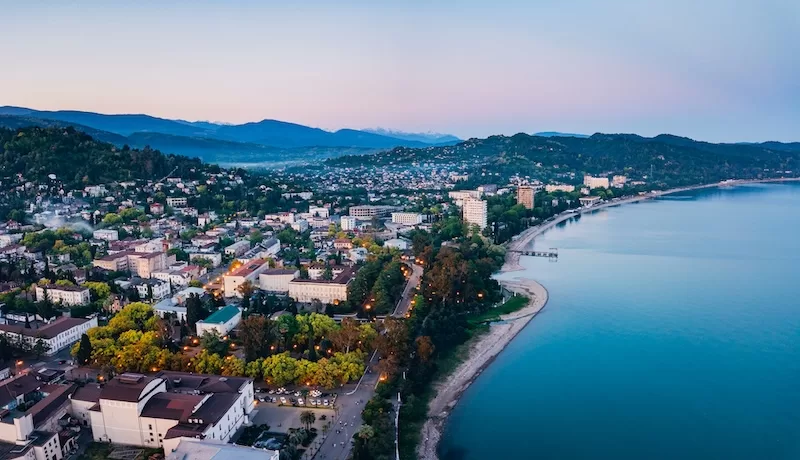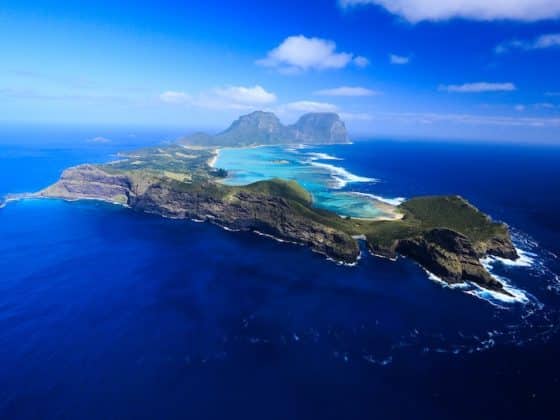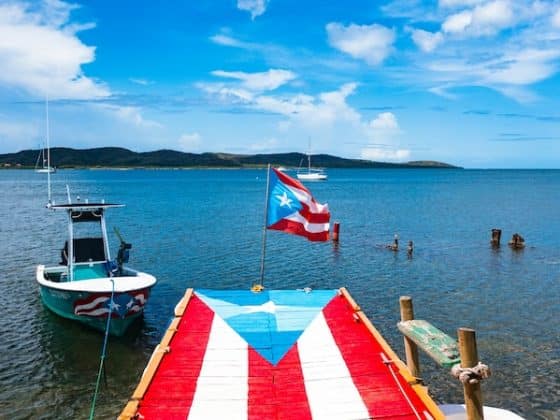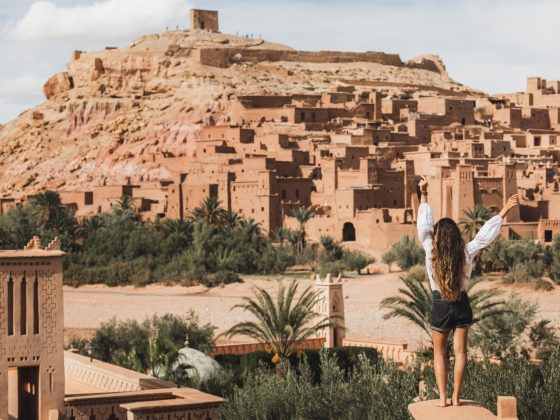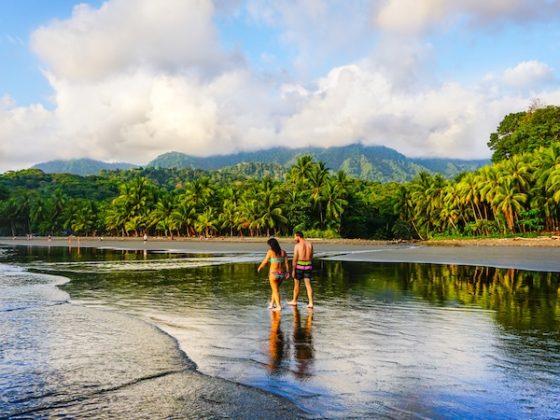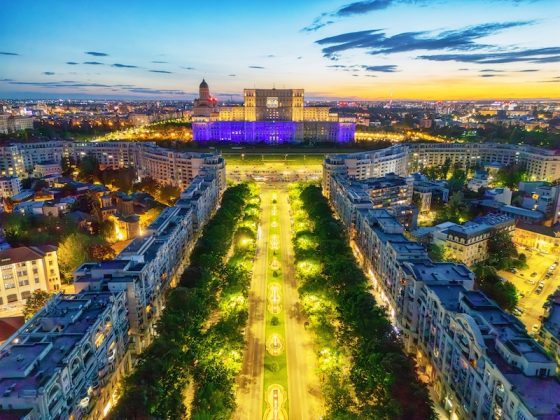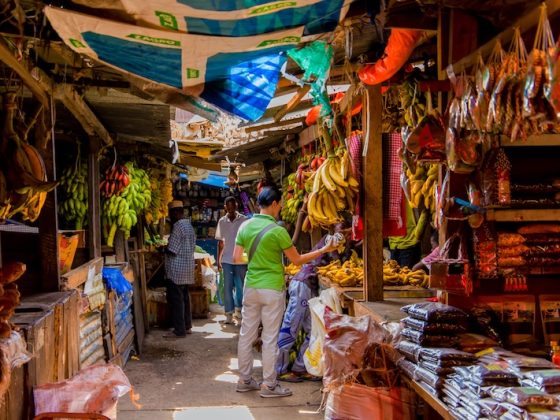Abkhazia: From Playground to Ruins
In the 1970s, trains packed full of tourists from across the Soviet Union would arrive into the coastal city of Sukhumi every summer. The city, nestled between the Black Sea and the Caucasus Mountains, was synonymous with leisure and joy for the people of the USSR. The promenade would be full of people taking scenic strolls, the beaches packed with children building sandcastles, and couples enjoying drinks in one of the city’s many seaside bars.
It was a bustling city whose subtropical climate and stunning mountainous backdrop made it a must-go destination for Soviet holidaymakers. This made the native Abkhaz population who inhabited the city very wealthy and respected in the Soviet Union. Nikita Khrushchev famously commented that the rest of the USSR should live like the Abkhaz “and not the other way round” during one of his many visits to the region.
It was a place where people could escape the drab greyness of their Soviet cities and enjoy a leisurely, state-subsidized vacation.
Fast forward to 2025 and it is quite a different story. Much of the hotels and resorts lie in ruins and the tourist numbers have dropped significantly. There are now even certain legal risks one must take to visit Sukhumi.
Abkhazia: A State in Limbo
Sukhumi is the capital city of Abkhazia. Today the entire region has drifted very far from the days of it being a Soviet vacation hotspot. The international community recognizes Abkhazia as being a region within Georgia that is considered to be under Russian occupation.
Abkhazia itself considers itself an independent country—and in every practical sense, it operates as such. The only other countries that recognize Abkhazia’s independence are Russia, Venezuela, Nicaragua, Syria, and Nauru.
In this geopolitical limbo, which has stagnated the country’s economy and led to a total dependence on Russia, life goes on and the Abkhaz people operate in a state of unrecognized independence.
Read more like this: The Curious Case of South Ossetia
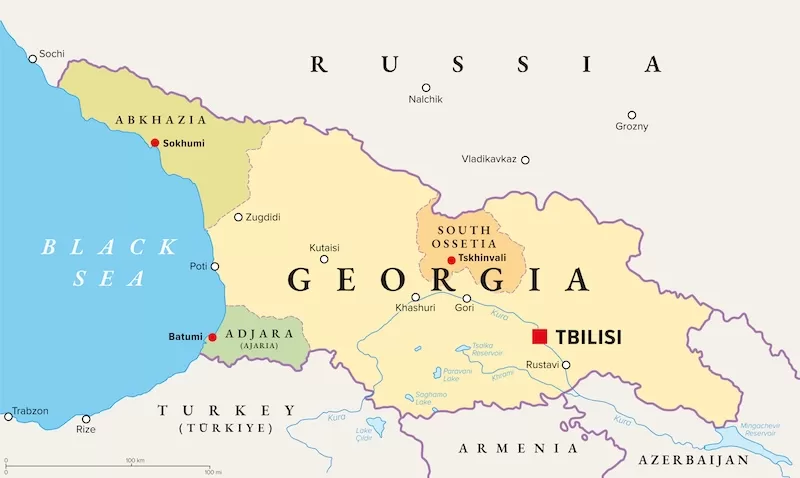
Traces of a Golden Age
Abkhazia is the home of the Abkhaz people, a Caucasian ethnic group who have inhabited the region for centuries. The region has been shaped by its various rulers of the last couple of hundred years, including the Greeks, the Byzantines, the Ottomans, and the Russians.
Following the Russian Revolution of 1917, Abkhazia was given ‘Republic’ status in the Soviet Union, but in 1931 this was revoked and it was merged into the Georgian Republic. Due to Abkhazia being a coastal region with stunning scenery and a good climate, it quickly grew into the Soviet Union’s premier holiday destination.
The Soviet Union provided state-subsidized vacations to workers, which made it affordable for people from all over the USSR to travel to Abkhazia in the summertime. Very interestingly, private farming was permitted in Abkhazia (it was illegal in the rest of the Soviet Union), which meant that there was often a more plentiful supply of produce in the markets for holidaymakers.
Living standards in Abkhazia were amongst the highest in the whole Soviet Union, and the economy was booming.
Read more like this: Tips to know before Moving Abroad
Collapse And Isolation
The Soviet Union collapsed in 1991 and things took a quick turn for the worse in Abkhazia. Georgia declared its independence, and the Abkhaz people saw no reason why they should be merged into a newly independent Georgia that they did not feel a part of.
This tension eventually boiled over in 1992 when an intense war broke out between Georgia and Abkhazia, with much Russian support given to the Abkhaz forces. Tens of thousands were killed, and over 200,000 ethnic Georgians who were living and working in Abkhazia were forced to flee.
By 1993, Abkhazian forces controlled most of the region. Abkhazia declared its independence, but it was not recognized by the international community. A blockade was imposed on the region, and this once thriving province was now decimated by war and economic collapse.
For the next 20 years, the region remained totally isolated from the world apart from limited amounts of Russian aid.
Read more like this: An Expats Journey at Georgia
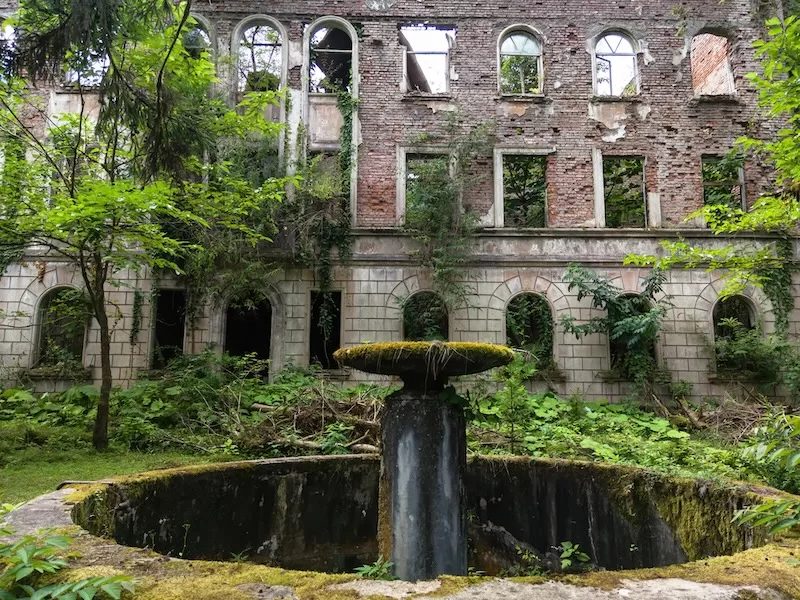
Between Moscow And Tbilisi
Abkhazia is only recognized by a handful of countries today. The UN, the EU, and most of the world consider it part of Georgia, although Georgia exercises zero practical control over the region.
The border with Georgia is heavily militarized. In regards to getting in and out of the region, there is a strange situation where both Russia and Georgia allow entry and exit—but not if you traveled through the other country. For example, you can enter Abkhazia via Georgia and leave again into Georgia, but if you entered from Russia and tried to leave via Georgia, you would be arrested.
The entire political and economic structures in Abkhazia are tied to Russia. The ruble is the currency, and Russian is now the dominant language. The region is littered with Russian military bases on its Georgian border.
The Abkhaz population has often pushed back against Russian influence and proven its mistrust of Russia through various protest movements. In November 2024, there were widespread protests across Abkhazia against a Russian-Abkhazian investment deal which the population felt undermined local interests. Abkhazia’s president, Aslan Bzhania, was forced to resign.
Read more like this: Best places to live in the World
Despite this history of some pushback against Russian influence at a local level, all of Abkhazia’s leaders have been backed by—and loyal to—the Kremlin. Tourism from Russia is increasing in the region but not nearly to the same levels as it used to be.
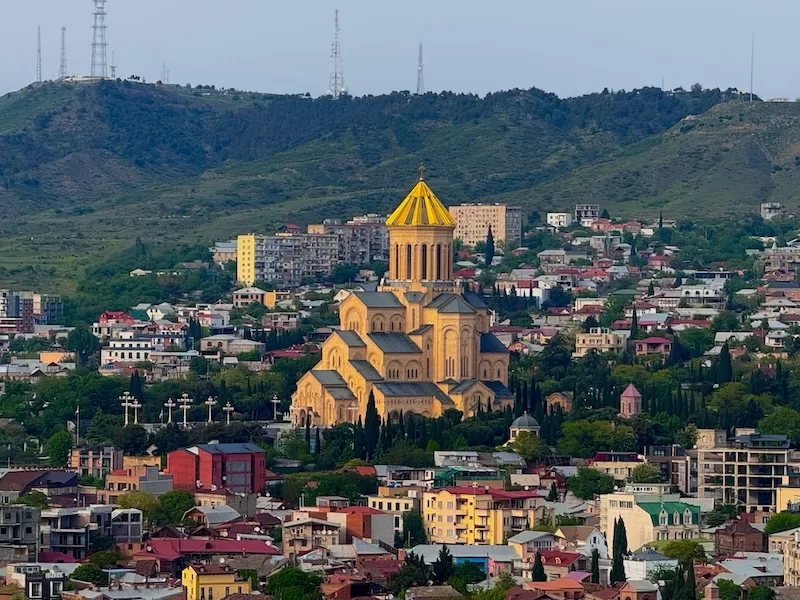
Between Ruins And Pines
Sukhumi is the capital city and remains a bit of a tourist attraction with its beachfront promenade as well as lots of restaurants, cafés, markets, and hotels. However, unlike its Western European contemporaries such as Benidorm or Lanzarote, Sukhumi is littered with the remains of bombed-out buildings and damage from the war. The region is recovering from the war extremely slowly, but it is making improvements year on year.
The town of New Athos in the north of Abkhazia is home to its largest Orthodox monastery and also has a colossal abandoned railway station, built to accommodate a level of tourism that has not returned to the region since the 1980s.
The allure of the region is partly down to it having such a range of landscapes. The town of Pitsunda on the coastline features clear yellow sandy beaches which back onto a vast pine tree forest. At the end of the forest sits Lake Ritsa which links into a sprawling mountain range—a biome for everyone’s tastes.
Abkhazia has an abundance of hotels. Many are operational and some are quite modern, but the majority are abandoned. There are hundreds of hotels lying in ruins which mark the entire landscape.
These serve as a constant reminder of the region’s past. It can be a sad reminder of how the region used to flourish, but it also can instill hope and show that the appropriate infrastructure is there to make the region potentially thrive as a tourist hotspot again should it ever find a resolution to its conflict with Georgia.
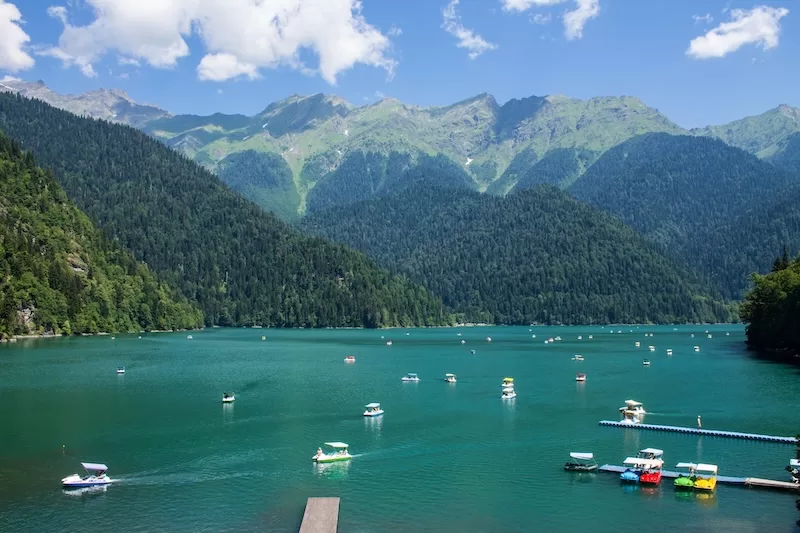
Waiting For A Future
Abkhazia still has somewhat of a draw for a small number of Russian tourists. Though it is not comparable to what it used to be, it has kept the economy ticking over.
This stands in stark contrast to South Ossetia, another region close by which also broke away from Georgia. It operates similarly as an unrecognized, de facto independent country with a huge Russian influence. However, South Ossetia is completely bankrupt and in economic ruins.
Abkhazia’s past as a tourism hotspot has helped it keep its head above water economically even today.
Without international recognition, Abkhazia will not fully flourish the way it could do and will likely remain underdeveloped. Whilst it still retains the same natural beauty it had in the Soviet times, its political situation ensures that many people give it a swerve when making their holiday plans today.
For the citizens, the future can be uncertain but day-to-day life is bearable. The quality of life is okay and many Abkhaz people are content and happy to have their own autonomy and independence which they feel was hard won.
People in the region are less Russophile than the South Ossetians but in general there seems to be a “the enemy of my enemy is my friend” type of mentality when it comes to their acceptance of Russian influence over the region. Due to the context of their history, they see Russia as a lesser evil and a better alternative to being completely subsumed into Georgia.
Abkhazia is a fascinating real-world example of a region still trying to adapt to a post-Soviet world—even 34 years after it collapsed.
FAQ about Abkhazia
What currency is used in Abkhazia?
The Russian ruble (RUB) is the main currency used in Abkhazia.
Where is Abkhazia located?
Abkhazia is a region situated on the eastern coast of the Black Sea, bordered by Georgia to the southeast and Russia to the north.
Is Abkhazia recognized as an independent Country?
Abkhazia declared independence from Georgia in the early 1990s. However, its status remains disputed, with limited international recognition.
Do I need a visa to visit Abkhazia?
Yes, most travelers require a visa. Entry is typically managed through coordination with the Abkhaz authorities, and travelers must also comply with Georgian entry laws.
What is the best time to visit Abkhazia?
The best time to visit is from May to September, when the weather is warm, and the Black Sea coast is ideal for sightseeing and relaxation.
What languages are spoken in Abkhazia?
Abkhaz and Russian are widely spoken. Some residents also understand Georgian and English in tourist areas.
About the Author
Ethan Rooney is an Irish journalist covering global communities, culture, and niche movements.
Contact Author
"*" indicates required fields
Stay Ahead on Every Adventure!
Stay updated with the World News on Escape Artist. Get all the travel news, international destinations, expat living, moving abroad, Lifestyle Tips, and digital nomad opportunities. Your next journey starts here—don’t miss a moment! Subscribe Now!
